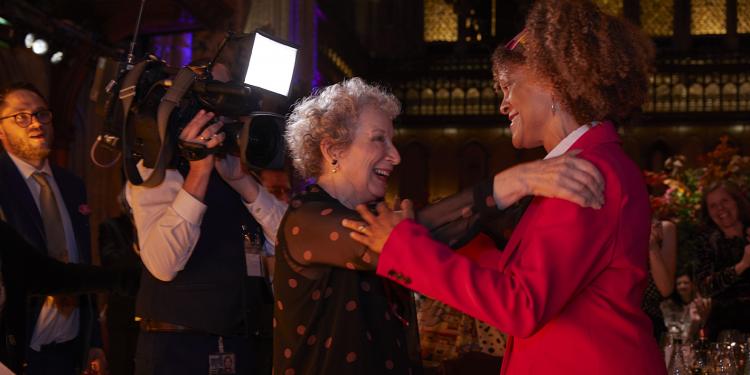

The 2019 Booker Prize
Margaret Atwood and Bernadine Evaristo congratulate one another as joint winners
Like a corpse in a zombie-flick, the old problem of split winners came back to life and an almighty ruckus ensued when Margaret Atwood and Bernardine Evaristo shared the prize.
The one thing the judges could decide on is that they couldn’t decide on a single winner. So, ignoring the prize stricture that only a single book could win, and ignoring too the reasons for the rule, they refused to budge and announced two winners.
Margaret Atwood with The Testaments, becoming only the fourth novelist to win the prize twice, and Bernardine Evaristo with Girl, Woman, Other, becoming the first black female novelist to win, were all graciousness and rose above the fuss.
Winner The Booker Prize 2019
- By
- Margaret Atwood
- Published by
- Chatto & Windus
Winner The Booker Prize 2019
- By
- Bernardine Evaristo
- Published by
- Hamish Hamilton
The Shortlist



By Elif Shafak



By Lucy Ellmann















